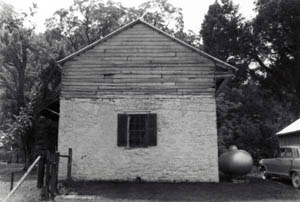Tenets: "Ninety-Five Percent of the Population Has Been Left Out of History Books"Throughout his long career as a scholar of American folklife, Warren was a spokesman for the unknown, forgotten, and industrious people of rural society who in their illiteracy failed to leave behind the types of written documentation of their lives and work on which historians tend to rely. “Ninety-five percent of the population has been left out of history books,” Warren was fond of saying. "There is an even greater problem with the work of most of those who write about the way in which people used to live: Because many writers ignored the vast majority of the population, the nontypical five percent of the population is represented as typical. In most parts of the United states, more that ninety percent of the population lived on small, largely self-sufficient farms. The federal census of 1790 showed that ninety-five percent of the population lived on farms, and Benjamin Franklin rightly observed in 1787, 'The great business of the continent is agriculture. For one artizan [sic] or merchant, I suppose we have at least a hundred farmers.' As time went on, of course, towns and cities flourished and grew, but throughout the nineteenth century, great areas of the country, especially the Upland South, remained predominantly rural. Yet it is these rural people, the bulk of the population, who are almost completely overlooked in the written records." Warren Roberts, “Preface,” in Log Buildings of Southern Indiana, rev. ed., 1996, ix.
|
